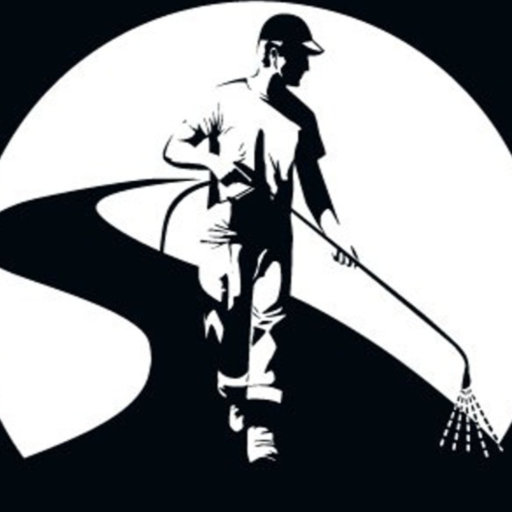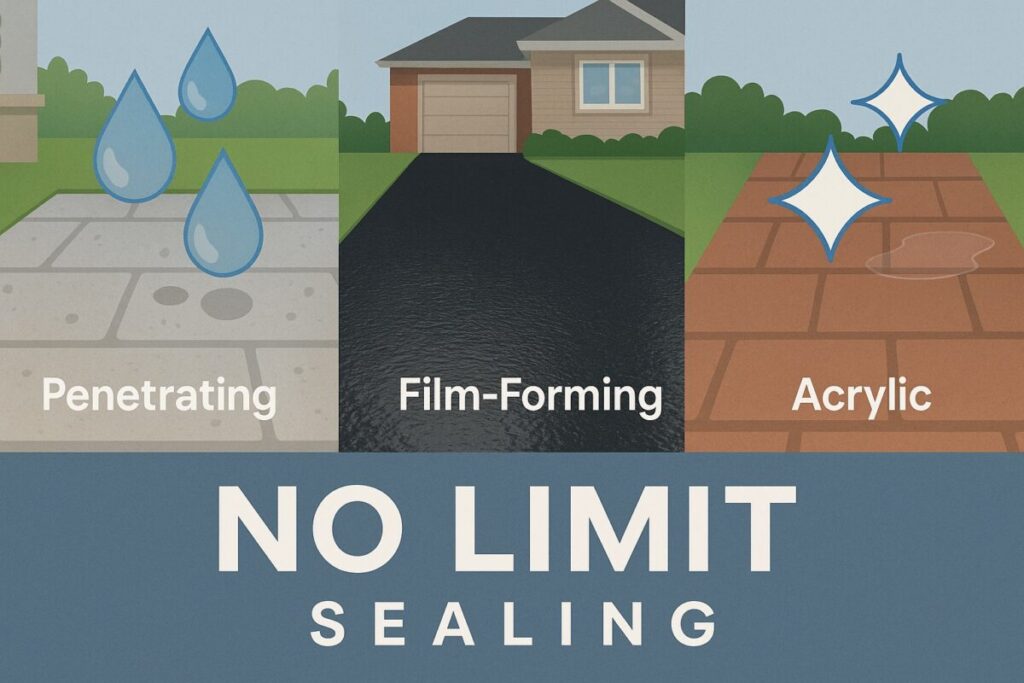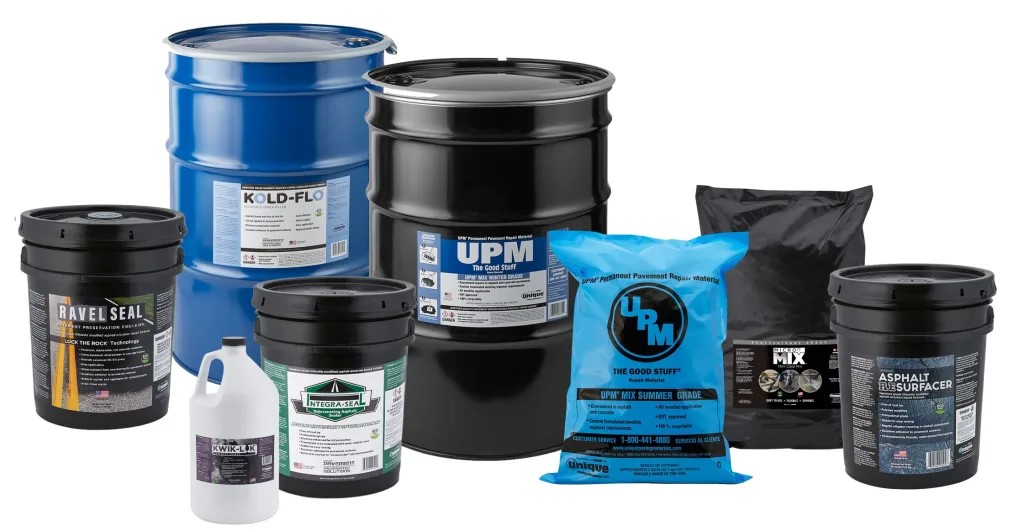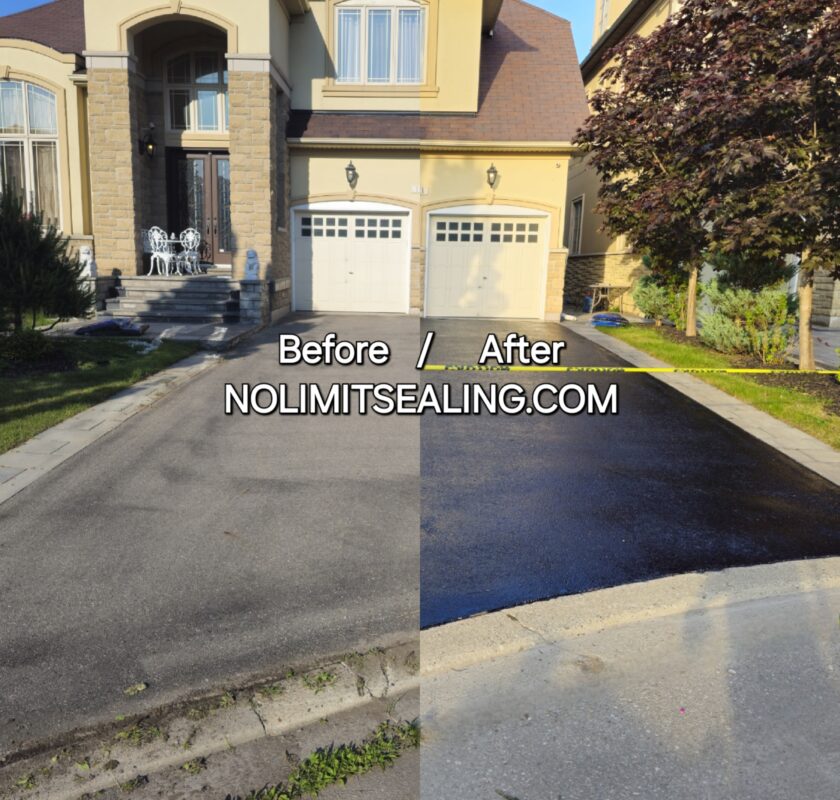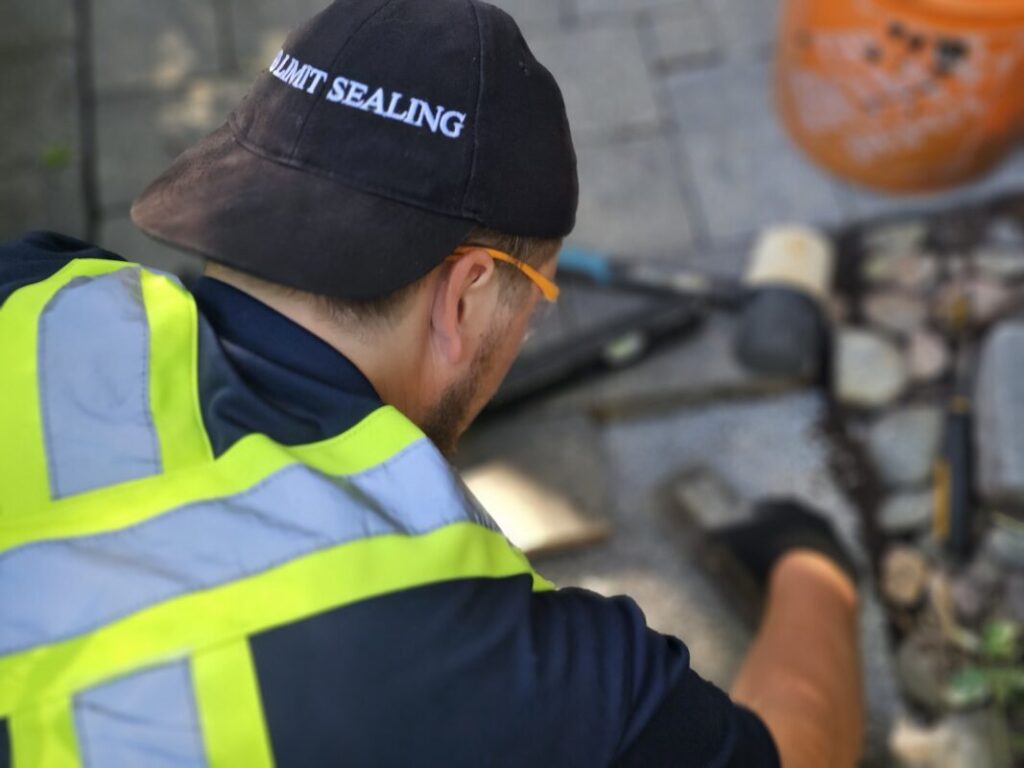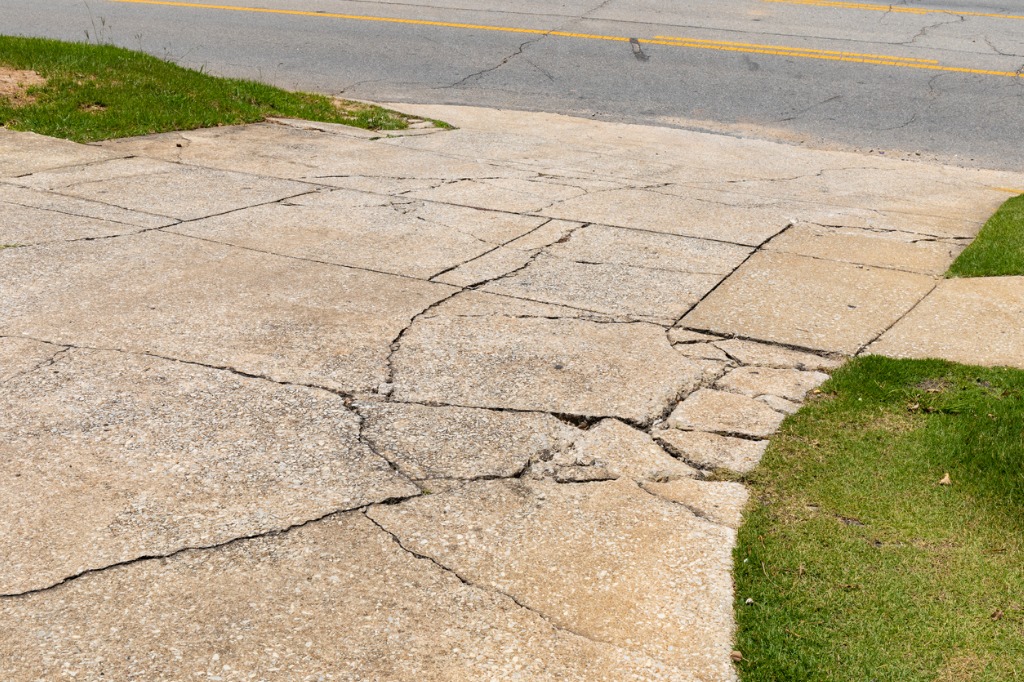Your driveway isn’t just a parking spot. It’s one of the first things people notice when they pull up to your home, and it’s constantly exposed to the harsh elements of Ontario’s climate. From freezing winters and heavy snow to blistering summer heat and UV rays, your driveway takes a beating year after year.
That’s where sealing comes in. But here’s the catch: not all sealers are created equal. In fact, using the wrong type of sealer can cause peeling, flaking, premature fading, or even make your surface more vulnerable to damage. At No Limit Sealing, we’ve worked with every kind of driveway material — asphalt, concrete, and interlock — and we know exactly which products perform best in Vaughan, Richmond Hill, Markham, and beyond.
In this article, we’ll compare the three main types of sealers — penetrating, film-forming, and acrylic — and explain which one is right for your surface.
The Three Main Types of Sealers
1. Penetrating Sealers
- How they work: These sealers soak deep into the pores of concrete or interlock, creating an invisible barrier against moisture and contaminants.
- Best for: Concrete driveways, interlock patios, and walkways.
- Key benefits:
- Excellent resistance against freeze-thaw damage.
- Protects against salt, oil, and chemical stains.
- Lasts longer (3–5 years per application).
-
Downsides:
- Doesn’t provide a glossy finish.
- More expensive upfront, but cost-effective long term.
We have notice that homeowners who are looking for long-lasting concrete driveway sealer in Vaughan, for example, are usually looking for penetrating products.
2. Film-Forming Sealers
- How they work: These sit on the surface, creating a glossy or matte “film” that locks out water and debris.
- Best for: Asphalt driveways and interlock pavers.
- Key benefits:
- Enhances appearance with a rich, polished finish.
- Provides stain resistance and UV protection.
- Affordable and widely available.
- Downsides:
- Needs re-application every 1–2 years.
- Can be slippery if applied too heavily.
Many Richmond Hill homeowners prefer film-forming sealers for their asphalt driveways because they restore that fresh, dark blacktop look after a long winter.
3. Acrylic Sealers
- How they work: Acrylics bond to the surface to provide both colour enhancement and surface protection.
- Best for: Decorative concrete, stamped concrete, and interlock patios.
- Key benefits:
- Enhances and deepens colour.
- Offers UV resistance, preventing fading.
- Ideal for homeowners who want a “wet look.”
- Downsides:
- Not as durable in high-traffic driveways.
- May require more frequent re-application.
If you’ve invested in interlock or decorative stonework in, for example, Markham or Aurora, acrylic sealing is the perfect way to showcase and protect it.
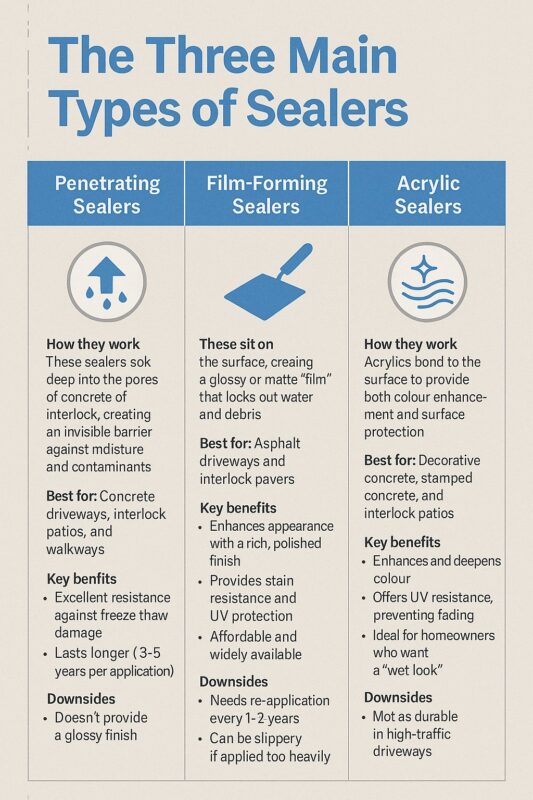
Which Sealer is Right for Your Driveway?
Here’s a quick breakdown:
- Asphalt driveways: Best with commercial-grade film-forming sealers.
- Concrete driveways: Penetrating sealers are the gold standard for durability.
- Interlock patios/driveways: Either acrylic (for appearance) or penetrating (for longevity).
At No Limit Sealing, we don’t believe in a one-size-fits-all approach. We evaluate the type of surface, level of wear, and environmental exposure before recommending the right product.
Common Mistakes Homeowners Make
- Choosing the cheapest product: Hardware-store sealers often lack the strength to survive Ontario winters.
- Over-application: Too much sealer can cause peeling and flaking.
- Ignoring prep work: Failing to clean or repair cracks before sealing shortens the lifespan of the application.
That’s why trusting a professional makes all the difference.
Why Work With No Limit Sealing?
- Local Expertise: We know the freeze-thaw cycle in the GTA better than anyone.
- Premium Products: We only use commercial-grade sealers designed for Ontario weather.
- Full Service: From cleaning and crack repair to sealing and finishing, we handle it all.
- Customer Focus: We’ve helped hundreds of homeowners in Vaughan, Richmond Hill, and Toronto protect their driveways.
FAQs: Driveway Sealing in Ontario
Q: How often should I seal my driveway?
A: Asphalt driveways should be sealed every 2–3 years, while interlock and concrete can last longer with penetrating sealers.
Q: Can I seal my driveway myself?
A: DIY kits are available, but they rarely provide the same durability as professional-grade products. Hiring a professional ensures longer-lasting protection.
Q: Is sealing worth the cost?
A: Absolutely. A $400 sealing job today can save you thousands in repaving costs later.
Conclusion: Protect Your Driveway the Right Way
Sealing is an investment in your home’s value, curb appeal, and longevity. But choosing the wrong sealer can cost you time, money, and frustration. Whether you need asphalt sealing in Vaughan, interlock restoration in Richmond Hill, or concrete protection in Markham, No Limit Sealing has the expertise to get it right. Contact No Limit Sealing today to protect your pavement and keep it looking great for years to come. Services are available in Toronto, Richmond Hill, Vaughan, Maple, Markham, Aurora, Newmarket, Scarborough and other cities in or around the Great Toronto Area.
To Learn More About Our Pavement Crack Filling Services – Click Here
To Learn More About Our Driveway Maintenance Services – Click Here
Our Interlock Maintenance Services – Click Here
